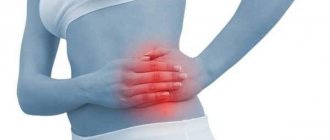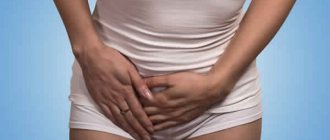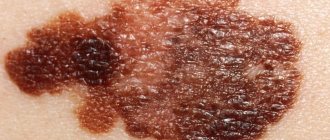The stomach is a hollow muscular organ that performs an important function in the body related to digestion. The process of digesting food is quite complex, so any diseases of the stomach and duodenum can negatively affect the functioning of the entire body and cause serious disruptions in other systems. This organ occupies second place in the digestive chain, and it secretes special enzymes and acids.
The causes of stomach diseases are negative external influences on the body. These include:
- stressful situations that affect the reduction of gastric juice formation;
- nervous breakdowns, which can cause loss of appetite and even anorexia;
- poor quality nutrition, diet abuse;
- poisoning with toxic substances.
There are other causes of stomach diseases. Symptoms and treatment depend on the type of disease. The most common complaints of the patient are cramping pain, frequent attacks of nausea, heartburn and a burning sensation in the throat caused by an increased level of acidity in the stomach.
Major stomach diseases
Almost every person has diseases of the stomach and duodenum. They have varying degrees of development and severity. Nutritionists say that stomach health is affected by a person’s lifestyle, tastes and habits. Some diseases develop slowly, while others arise abruptly, suddenly and rapidly. Sometimes signs of gastric ailments develop so rapidly that the patient needs urgent hospitalization.
The main symptoms of gastric diseases include pain in the hypochondrium on the right side, which intensifies while eating or, conversely, when the patient is hungry. In more complex forms, the pain acquires a constant aching character with paroxysmal outbreaks. Self-medication only aggravates the inflammatory process and contributes to the development of more serious types of stomach disease. Symptoms and treatment for each type of disease have their own characteristics. For example, with an ulcer, a characteristic symptom is belching with a sour smell, and for gastritis, the appearance of heartburn is more typical. Sometimes, due to illness, gastric bleeding occurs, and meals may be accompanied by sudden bouts of vomiting. Treatment of stomach ailments depends on the severity of the patient’s condition, the nature of the disease and its clinical manifestations.
Characteristic symptoms
Flatulence can be a symptom of an upset stomach.
Everyone knows the symptoms of indigestion. Signs most often appear after eating:
- flatulence;
- painful sensations in the upper abdomen (this can be a cutting pain with an ulcer or aching with gastritis);
- nausea after eating;
- vomit;
- temperature (due to inflammation);
- chills;
- belching;
- a sharp feeling of heaviness in the stomach after eating;
- heartburn.
Gastritis
Gastritis is called inflammation of the gastric mucosa, which occurs due to exposure to bacteria, poor nutrition, alcoholism, as well as abuse of diets and fasting (especially snacking on sandwiches and dry food), spices and spicy foods. The most common symptoms of this stomach disease (treatment and signs of gastritis depend on the causes that cause it) are characterized by an increased level of acidity, heartburn, and sore throat when swallowing. In addition, signs of gastritis include intestinal disorders: constipation or, conversely, diarrhea. If the cause of gastritis is pathogenic bacteria, then it progresses quite quickly, erosion and destruction of the walls of the gastric muscle are noted.
In addition, the cause may be an acute autoimmune process, when the body perceives its own stomach as something foreign. Antibodies produced by the body begin to attack it and eat away the walls and mucous membranes. During treatment of the disease, it is important to take medications only after meals, when gastric juice is produced. In this case, the patient must be prescribed a diet for stomach disease, which completely excludes the consumption of alcoholic beverages, hot, spicy and fatty foods. Diagnosis is carried out by endoscopy.
What can diarrhea lead to?
With acute diarrhea, the body loses a significant amount of water and minerals, which can lead to dehydration. Children and the elderly are most sensitive to dehydration.
Signs of dehydration: dry skin and oral mucosa, extreme thirst, rapid breathing and pulse, rare urination, weakness, dizziness, “sunken eyes.” It may intensify if, against the background of diarrhea, fever appears (for example, with intestinal infections) or vomiting (with poisoning).
This negatively affects blood circulation and the functioning of internal organs, for example, when potassium is lost, the function of the intestines and heart is impaired. Even death is possible.
Chronic diarrhea can lead to anemia.
Due to the fact that diarrhea disrupts the digestion process, a large amount of undigested nutrients enters the large intestine, which in turn leads to rapid development of bacteria and intoxication of the body.
Gastric ulcer: symptoms, treatment
Destruction of the stomach walls leads to peptic ulcers, which are characterized by an increased amount of acid and bile produced. Ulcers can be either single or numerous. The causes of the disease are the following factors:
— unhealthy diet (dry snacks, lack of first courses in the diet);
- alcohol, smoking;
- taking certain medications;
- stress, nervous shock;
— violation of the work and rest regime.
The main symptom of a gastric ulcer is violent belching with a characteristic sour odor. Other symptoms include nausea, pain in the hypochondrium, loss of appetite and sudden weight loss. Complications of gastric ulcer include the risk of gastric bleeding, perforation or penetration of the stomach, as well as the development of pyloric stenosis. Treatment of both peptic ulcer and its complications is mainly carried out surgically.
Application of traditional methods
How to treat an upset stomach using traditional recipes? There are a huge number of unconventional ways to get rid of this problem. A decoction of rice is often prepared. To do this, you need to take water and cereal (6:1), mix thoroughly and put on low heat. It is necessary to cook until completely cooked, then strain the drink and consume 75 ml every 2 hours. The decoction must be warm, and the course of therapy lasts for 2-3 days. This treatment method is suitable even for small children. Blueberry or St. John's wort tea has a good effect on the stomach. You can also drink chamomile and calendula drinks. The recipe for all medicines is the same: 20 g of flowers and 1 liter of boiled water.
A good way to get rid of indigestion is to use white cabbage. You need to take such a vegetable, squeeze the juice out of it (using a blender) and take 0.5 cup three times a day. Brussels sprouts are used the same way. Walnut tincture has an excellent strengthening, antiseptic and cleansing effect. You need to take young nuts, pour alcohol into them and leave for 3-4 days. It is recommended to use the product in 5-10 drops (only they need to be added to warm water). The frequency of therapy is 3 times a day.
Cucumber provides effective relief for indigestion. This vegetable helps remove cholesterol from the body and also prevents the development of putrefactive processes in the intestines. In order not to suffer from disorders, it is enough to simply introduce dishes with fresh cucumbers into your diet. For the treatment of chronic gastritis, it is often recommended to use propolis. You need to take 8 g of this beekeeping product and chew it every day for a month. The substance should not be used if allergic reactions occur.
Indigestion is often treated with pomegranate peel. You need to take 3-4 tbsp. l. such raw materials, place it in a saucepan and brew with boiled water (500 ml). Then you need to put the container on the stove, bring the drug to a boil and keep it on low heat for 30 minutes. It is recommended to consume the finished product 50 g half an hour before meals.
You can make a decoction from the skin of chicken stomachs. At one time you will need half of this product; it needs to be dried and crushed. After this, the raw material must be poured with boiled water and left for half an hour. It is recommended to use the drug 2 times a day. An effective remedy is prepared from oak bark. You need to take 5 tbsp. l. dry raw materials, pour boiling water (1 liter), leave for 4 hours and drink the drink every 2-3 hours. It is recommended to use willow bark according to the same principle.
If you know what to do if you have an upset stomach, you can quickly forget about this problem for a long time.
Complications of peptic ulcer
Untimely or inadequate treatment of an ulcer can lead to some complications of this disease. The most common include those mentioned above - perforation, penetration, bleeding and pyloric stenosis.
Ulcerative bleeding is characterized by bloody vomiting and blood in the stool. If the ulcer is localized above the ligament of Treitz, then the patient often experiences vomiting; if below, then black (bloody) stools occur. At the same time, the patient's hemoglobin rapidly decreases. First aid at home involves flushing the stomach with cold water and applying an ice pack to the stomach. Drug treatment includes the use of H2 blockers, Novocaine and Adrenaline, liquid fibrinogen, Secretin and other medications. In difficult cases, surgical intervention is performed.
Perforation of a gastric ulcer is a serious complication. Symptoms include acute pain of a “dagger” nature, muscle tension in the anterior abdominal wall, bradycardia, epigastria, pale skin, positive Shchetkin-Blumberg syndrome. 5-8 hours after perforation, a stomach ulcer may acquire another form of complication - peritonitis (inflammation of the peritoneum). Characteristic signs of this patient condition include thready rapid pulse, hypotension, dynamic intestinal obstruction, fever and leukocytosis. Later, flatulence, urinary and stool retention are added to the symptoms, and in more rare cases, vomiting occurs. Laparoscopy can be used to treat a perforated ulcer.
Penetration is the spread of an ulcer into the tissue surrounding the stomach. There are several stages of this complication of gastric ulcer:
- necrosis through all layers of the hollow organ and duodenum;
— fibrous fusion with organs adjacent to the stomach or duodenum;
- penetration of the ulcer into the tissues of adjacent organs.
Diagnosis is made using an X-ray or endoscope, which is typical for any stomach disease. Symptoms and treatment are closely related. The clinical picture is caused by intense, constant pain, nausea and vomiting, which tend to intensify. Symptoms of the inflammatory process also appear: high levels of ROE, leukocytosis, low-grade fever. Treatment is usually surgical.
Pyloric stenosis refers to the localization of an ulcer in the duodenum and pyloric canal. Impaired patency is aggravated by inflammation and spasm of the pylorus. This complication is one of the severe forms of stomach disease. Symptoms and treatment for this type of peptic ulcer depend on whether the process is recurrent. When a relapse occurs, the patient experiences a bursting feeling in the epigastric region, nausea, bouts of vomiting, and sudden weight loss. Treatment in this case is always surgical.
How do I know if I have diarrhea?
If
very strong, the urge to defecate practically follows each other. Also disturbing are abdominal pain, flatulence, nausea and vomiting. The appetite disappears, the person loses weight.
Large stools are diagnosed with osmotic diarrhea. Copious watery stools occur with secretory diarrhea. In this case, steatorrhea (fatty stool sticking to the walls of the toilet) is possible. Small liquid stools with mucus and blood - with exudative diarrhea. With hyper- and hypokinetic diarrhea, liquid or mushy stool of small volume is observed.
Determining the cause of diarrhea requires a stool test, including a stool test for parasites. Chronic diarrhea may require intestinal X-rays, endoscopy and biopsy.
Gastric adenocarcinoma or glandular cancer
Adenocarcinoma is quite common in medical practice. As a rule, the tumor is localized in the antrum or pylorus of the stomach. The most common cause of the disease is excessive consumption of foods high in nitrites.
At an early stage, adenocarcinoma is manifested by nausea, heaviness in the stomach, lack of appetite and rapid weight loss, and intestinal upset. Immediately after eating a small amount of food, the patient experiences a bursting feeling at the site of the solar plexus, which indicates the presence of an intramural tumor. With oncology of the cardinal compartment, food does not pass into the duodenum, which is accompanied by vomiting. Advanced cases of cancer are accompanied by pain in the epigastric region; when the tumor disintegrates, internal bleeding occurs, which is detected by the presence of blood in the stool and bloody vomiting. Treatment of gastric diseases of an oncological nature is carried out surgically: total (resection of the entire stomach) and subtotal (resection of part of it).
Diet
In case of severe exacerbation of the stomach, doctors recommend completely eliminating food intake and ensuring maximum fluid intake (at least 2 liters per day). This technique cleanses the body well and eliminates strong signs of intoxication.
Currently reading: Diagram of the human stomach with pictures
After improving your general condition, it is best to follow a therapeutic diet for several days:
- Exclusion of unhealthy foods (fried, salty, pickled foods, carbonated, alcoholic drinks, fermented milk products, milk, fresh baked goods, fast food);
- It is preferable to predominate in the diet of rice water, potatoes, eggs, vegetable soups, crackers, jelly, and weak tea.
To eliminate dehydration, you need to take electrolyte solutions purchased at the pharmacy, warm rosehip decoction, fruit juice, and dried fruit compote. The more fluid gets into the body, the faster the recovery will come.
Stomach gurgle
Stomach pain always means the presence of some pathology. A feeling of heaviness, heartburn, and nausea are considered signs of gastritis. Typically, the patient independently takes medications that “suppress” the symptoms, but do not treat the disease itself. The worsening of gastritis extends to the duodenum and is called bulbitis.
Bulbit can be catarrhal and erosive and is a type of inflammatory disease of the stomach. Symptoms and treatment of such a disease have been described many times in the specialized literature. The disease is accompanied by nausea, vomiting, severe pain, and a feeling of bitterness in the mouth. The pain falsely resembles attacks of pancreatitis.
Antacid medications such as Gastal and Almagel A will help relieve pain. They are able to neutralize the destructive effect of expelled bile and acid, and the main method of treatment is diet for stomach disease. During an exacerbation of the disease, you should immediately stop taking all medications, stop smoking, coffee, and alcohol. Fasting, abusing diets for weight loss, and taking dietary supplements are strictly prohibited.
Stomach upset during pregnancy
Indigestion during pregnancy can be a physiological phenomenon, as the growing fetus puts pressure on the intestines, which causes unpleasant symptoms. In this case, the discomfort quickly passes without special treatment.
While carrying a child, the following provoking factors may influence the development of permanent indigestion:
- Infection entering the body by eating contaminated foods;
- Failure to comply with personal hygiene rules;
- Poisoning;
- Binge eating;
- Abuse of fatty, pickled and salty foods;
- Frequent consumption of fast food;
- Eating incompatible foods (milk with cucumbers);
- Development of dysbacteriosis;
- Infestation with parasites;
- Severe nervous disorders;
- Exacerbation of appendicitis.
Treatment of pathology at home involves taking adsorbents and following recommendations for cleansing the body of toxins (frequent consumption of warm liquid). If the symptoms do not go away and the general condition worsens, then it is necessary to go to the hospital.
Food poisoning and chronic inflammation of the digestive system are treated in a hospital setting with the selection of appropriate therapy that will not harm the health of the unborn baby. Pregnant women should follow preventive measures to prevent the development of signs of intoxication.
Gastric carcinoma
Gastric carcinoma is a malignant tumor that occurs due to many provoking factors. The risk group most often includes male patients over 40 years of age who have a history of polyps in the stomach, peptic ulcers and chronic gastritis. The disease can be provoked by the abuse of products with carcinogens, as well as alcohol and smoking. Excessive salt consumption also causes pathological inflammation of the mucous membranes. The hereditary factor is also important.
Symptoms of carcinoma include increased fatigue of the patient, apathy, lack of appetite and aversion to certain foods. A person quickly loses weight, weakens, he is constantly tormented by heaviness in the stomach, and there is sudden vomiting. A blood test shows increased leukocytosis, the content of myelocytes and myeloblasts. For diagnosis, X-rays, ultrasound, tomography and gastric biopsy are used. Treatment is carried out through medication and surgery. Conservative medicine involves the use of painkillers and antiemetics, vitamins and antitumor agents.
Prevention of this type of gastric ulcer consists of following a diet, avoiding stress and nervous shock, giving up low-quality alcohol, smoking and other bad habits.
Causes
What causes diarrhea? The causes of this condition can be varied. It is important to know well the cause of diarrhea, as otherwise treatment may not be effective.
A condition such as diarrhea can be caused by the following reasons:
- poisoning,
- diet errors, overeating,
- chronic or acute intestinal infections
- parasitic diseases,
- lack of digestive enzymes,
- intestinal motility disorder,
- inflammatory processes of the gastrointestinal tract,
- disturbance of the bacterial balance in the intestines,
- tumors of the gastrointestinal tract.
Additional factors contributing to the occurrence of diarrhea are:
- insufficient personal hygiene;
- insufficient chewing of food, incorrect eating habits;
- stress and neuroses;
- sedentary lifestyle;
- use of certain types of medications;
- reduced immunity;
- pregnancy;
- childhood.
However, whatever the causes, diarrhea requires serious treatment and adequate treatment.
Our digestive organs are a very convenient gateway for various pathogenic agents to enter the body. It doesn’t matter what exactly it is – viruses, bacteria, protozoa or multicellular parasites. Many microorganisms can settle in the intestines and cause infectious diseases leading to diarrhea.
The main viral and bacterial infections that can cause diarrhea are:
- salmonellosis,
- dysentery,
- rotavirus infection,
- enterovirus infection.
As a rule, the main symptom indicating that diarrhea is caused by an infection is fever. Also, infections of the gastrointestinal tract are often accompanied by nausea, vomiting, and general weakness. Patients often complain that they have a stomach ache or pain in the lower abdomen.
Digestion is a complex chemical process. It involves many substances, whose task is to break down the organic substance entering the digestive tract into those simple compounds that can be absorbed by the body’s tissues. Many of the substances necessary for digestion are produced by various organs - the liver, stomach, pancreas.
Such compounds include pepsins, bile, pancreatic enzymes - protease, lipase, amylase. If any of the enzymes is missing, this means that undigested food remains will accumulate in the intestines. This causes irritation and upset of the intestines, which causes diarrhea.
Poisoning
Often, loose stools are the body’s reaction to toxic substances. There may well be some toxins in the food we eat. This may mainly apply to stale or expired products, products treated with some chemicals or containing poisons (mushrooms, fruits and vegetables). It is also possible that drugs and chemicals may be ingested in large doses.
This circumstance may well cause poisoning of the body, accompanied by diarrhea. As a rule, in case of poisoning, not only loose stools are observed, but also other symptoms. Typically, poisoning is initially accompanied by pain and stomach cramps. As the pathological process develops, poisoning begins to manifest itself as cramping pain, vomiting, nausea, sometimes headaches, neurological symptoms, or symptoms of cardiovascular failure.
One of the varieties of this type of diarrhea is the so-called “travelers’ diarrhea”. Although in fact this disease has a whole range of causes. It occurs in people who try a large amount of unusual and unfamiliar food. Most often, this behavior is typical for people who travel to distant and exotic countries and want to get new sensations.
However, the problem is that our gastrointestinal tract and the body as a whole are conservative in nature and, to a certain extent, are tuned to the diet to which they have been accustomed since childhood. And when faced with something new, their work becomes disorganized, resulting in loose stools and an upset stomach.
In diseases of this type, undigested food remains due to malfunctions of the autonomic nervous system of the intestine move too quickly through it and do not have time to form solid feces. Most often, this type of diarrhea is characteristic of a disease called “irritable bowel syndrome.”
Dysbacteriosis
Many of the bacteria that live in our intestines are not pathogenic, but take part in the digestive process. If the number of intestinal bacteria drops catastrophically, for example, in the case of taking antibiotics, then a proliferation of other microorganisms may be observed, as well as disruptions in the digestion process, which often leads to diarrhea. After restoring the balance of the microflora, the stool, as a rule, returns to normal.
The occurrence of abdominal distress can be due to a number of different reasons. It all depends on the age and individual physiological characteristics of a person. Some people experience stomach problems after quick snacks, while others suffer from them due to certain diseases of the gastrointestinal tract and other internal organs. The latter include:
- duodenal or gastric ulcer;
- gastritis;
- increased acid content in gastric juice;
- infection by the bacterium Helicobacter pylori;
- heart failure;
- pathologies of the endocrine system;
- stomach cancer.
The causes may also be nervous stress, accompanied by sleep disturbances and anxiety. Bad habits such as smoking, alcohol abuse or overeating also have a negative effect on the gastric mucosa. As for the diet, an unbalanced menu with a lot of fatty, sweet or protein foods also leads to gastrointestinal disorders.
The child has
Stomach upset in young children occurs for several reasons. Most of them are related to the mother. If she violates the correct diet, the baby develops dyspepsia. This condition can be caused by:
- intolerance to certain foods;
- intestinal infections;
- dysbacteriosis;
- abnormalities of intestinal development;
- binge eating;
- taking antibiotics;
- cold.
In older children, dyspepsia is more often associated with low-quality products or even poisoning with them. The cause may be intestinal infections, chronic stomach diseases. Other serious problems include:
- acute leukemia;
- dysbacteriosis;
- frequent stress;
- allergy;
- ARVI, flu.
During pregnancy
During pregnancy, problems may arise, including with digestion of food. Pregnant women often want to try unhealthy foods, such as carbonated drinks, sweets, fried, fatty or salty foods. The result is first heartburn, heaviness in the stomach, which slowly develops into diarrhea, nausea, accompanied by general weakness. In addition, during pregnancy, the digestive tract remains unprotected from external factors.
Stomach pain may be caused by an enlarging uterus. This provokes indigestion. The causes may be the same diseases that cause dyspepsia not during pregnancy. This is gastritis or an ulcer. The causes of dyspepsia characteristic of pregnancy are as follows:
- stressful situations;
- decreased secretory activity of the stomach;
- toxicosis;
- change in taste preferences.
The feasibility of traditional treatment of peptic ulcers
Many people are afraid of surgical techniques when they have stomach pain. Diseases, the symptoms of which were discussed above, can be treated using alternative medicine. Additional alternative treatments, chosen in conjunction with the treating physician, may provide the patient with relief of symptoms and reduction of mucosal inflammation. Unfortunately, not all stomach diseases can be overcome with the help of alternative therapy. Symptoms and treatment with folk remedies for any disease must be discussed with a doctor, since sometimes such therapy can not only be irrational, but can also significantly harm the patient. For example, oncological diseases, as well as perforation, peritonitis, perforation and other severe forms require immediate surgical intervention. Any delay in surgery could result in death for the patient.
Other types of gastric ulcer, the symptoms of which were discussed with a doctor for treatment with folk remedies, may well recede with the use of various decoctions of medicinal plants. A good remedy is a tincture of aconite root, celandine, potato flowers and calendula. Decoctions of strawberries, calamus, and corn silk help relieve inflammation. Treatment with folk remedies is selected individually for each patient.
Prevention of peptic ulcers
Prevention of stomach diseases is an important component of the treatment process. The patient needs to eat right, avoid salty, spicy, spices, and completely give up coffee, alcohol, and smoking. To control the symptoms of diseases, as well as prevent their occurrence, you should eat often, in small portions. Skipping meals is extremely undesirable, but overeating also threatens inflammatory processes. Do not swallow food in large, poorly chewed pieces.
Treatment of stomach diseases is complex and involves the risk of developing various complications. That is why it is better to take care of your health and avoid such problems. Prevention of gastric ulcer includes simple measures. You should try to avoid various stressful situations, practice relaxation methods, meditation, and maintain a work-rest schedule. Physical fitness is important. Simple physical exercises help keep muscles toned.
If you are faced with the problem of constipation and diarrhea, you can say that it is an intestinal disorder. This syndrome occurs due to various reasons - poor nutrition, stress, pathogenic influence of microorganisms. You can diagnose the disease yourself or with the help of a specialist. To cure intestinal disorders, complex therapy with medications and folk remedies and a special diet are used.
How to protect yourself from diarrhea
Wash your hands with warm water and soap after using the toilet, changing your baby, and before eating.
Wash your hands, cutting boards and knives thoroughly after cutting meat. The meat must undergo complete heat treatment.
Monitor the expiration date of products and do not leave finished products in a warm place for a long time.
Do not drink raw water or any untreated water of unknown origin. To purify water, you need to boil it for 15 minutes, add tablets or drops of iodine and chlorine, or use a special filter.
Also, under no circumstances should you eat unwashed fruits and vegetables (it is advisable to wash them only in clean water and very thoroughly, or even better, peel them).
Causes of intestinal disorder
Doctors name the following reasons for the occurrence of stomach and intestinal problems in adults:
- unhealthy diet - bad foods, fatty, spicy, heavy foods, sometimes just new ones, affect the functioning of the gastrointestinal tract;
- infections, viruses, bacteria that entered the body and digestive tract after communicating with patients or eating contaminated food;
- dysbacteriosis – changes in intestinal microflora;
- stress, fatigue, nervous environment, fear.
The child has
Children are more susceptible to intestinal disorders than others. The reasons may be poor nutrition and unhealthy psycho-emotional environment. The younger the child, the more dangerous the disorder is for him. In infants, intestinal distress can lead to severe dehydration, which affects the functioning of the heart and brain. In addition, the cause of intestinal disease can be fear of defecation.
During pregnancy
A common condition in pregnant women is a functional disorder of the abdomen, upper and lower gastrointestinal tract. If chronic intestinal problems, constipation or diarrhea occur, the reasons may be changes in hormonal levels, a general restructuring of the functioning of systems and organs, increasing intra-abdominal pressure, and poor nutrition. The combination of these factors has a negative effect on the intestines, and the disorder is exacerbated by large amounts of food taken, fatty, spicy foods, foods with cabbage, legumes or baked goods.
Who gets diarrhea and how?
- When food passes through the intestines too quickly due to increased peristalsis (wave-like contraction of the walls).
- If the absorption of water in the large intestine is impaired or inflammatory fluid is released into the intestinal lumen, which causes liquefaction of the intestinal contents.
- Exudative diarrhea is diagnosed in inflammatory bowel diseases (ulcerative colitis) and ischemic intestinal disease. Manifestations: vomiting, pain, accelerated peristalsis and rapid evacuation of intestinal contents, impaired absorption of water from the intestines and digestive function, often with the development of fermentation and gas formation (flatulence). Exudative diarrhea also develops with bacterial acute intestinal infections, in which case they are called invasive. In this case, bacteria damage the epithelium and can penetrate into the blood with the development of sepsis (blood poisoning). Symptoms: vomiting, abdominal pain, fever, loose stools, often with blood and pus.
- Secretory diarrhea is caused by certain laxatives and certain bacteria. In this case, only the small intestine is affected without the development of an inflammatory process, and the stool becomes liquid, copious, watery and without blood or pus. The disease begins with the appearance of frequent loose stools with a slight increase in body temperature, then vomiting occurs and dehydration quickly sets in.
- Osmotic (osmolar) diarrhea occurs when there is a deficiency of digestive enzymes (congenital enteropathy, chronic pancreatitis), removal of part of the small intestine, or taking certain laxatives. With osmotic diarrhea, the stool is profuse and often contains a large amount of semi-digested food residue. Osmotic diarrhea can also be caused by viruses (most often rotaviruses). Rotavirus diarrhea most often affects children in the autumn-winter period.
- Hyper- and hypokinetic diarrhea. Hyperkinetic develops when intestinal motility accelerates, for example, during stress during exams or with irritable bowel syndrome (“bear disease”). The stool is liquid or pasty, frequent, but the daily amount is normal and does not exceed 200-300 g. Hypokinetic diarrhea occurs less frequently. It is associated with excessive bacterial contamination of the small intestine.
- Drinking unboiled contaminated water.
- Viral, bacterial or parasitic infection of the intestines.
- Intestinal infections: dysentery, salmonellosis, etc.
- Dysbacteriosis.
- Poor diet (for example, too much spicy or rough plant foods).
- Non-compliance with diet.
- Food allergies.
- Food intolerance (eg lactose)
- Acute poisoning.
- Metabolic disease.
- Chronic diseases of the digestive system (gastritis, colitis, enteritis, pancreatitis, hepatitis, etc.).
- Lack of vitamins K, F, B2 (riboflavin) and niacin.
- Emotional disorders.
- Stress.
- Changes in food, water and climate that occur during long journeys - “travelers' diarrhea”. The causative agents can be all medications: antibiotics, a number of vitamin preparations, iron supplements, medications to lower blood pressure, antidepressants.
- Parasites in the human body.
- Malabsorption syndrome.
- Diarrhea lasts more than 3-4 days.
- Streaks of blood or mucus in the stool.
- Severe abdominal pain is a sign of acute surgical pathology.
- The temperature rises sharply.
- The stool resembles tar (black), which occurs with bleeding from the upper gastrointestinal tract.
- With significant dehydration.
Diagnostics
Before treating an intestinal disorder, the doctor identifies the causes of the disease. The doctor asks questions about the duration of the illness, the presence of symptoms, diet, lifestyle, employment, and taking medications. This information helps determine the direction of diagnosis and prescribe the correct treatment for intestinal dysfunction.
Instrumental confirmation of the disorder includes ultrasound, x-ray, fibrogastroduodenoscopy. The latter is an informative research method - during it, the doctor visually assesses the condition of the intestines and takes a piece of tissue for a biopsy. This helps to understand the clinical picture, because some symptoms of an intestinal disorder may not appear immediately.
Ancillary methods for diagnosing intestinal disease include laboratory tests of blood, urine, and stool. They help identify the infection that caused diarrhea and detect traces of blood in the upper gastrointestinal tract, duodenum or other parts of the intestine. After diagnosis, treatment is prescribed depending on the severity of the disease, what symptoms appear, and the individual characteristics of the patient.
Which drug to choose for diarrhea?
Diarrhea lasts no more than seven days. If the condition does not improve after several days of taking antidiarrheal medications, seek immediate medical attention.
Treatment is prescribed taking into account the cause of the disease. If stool disorder occurs due to psychological experiences, you can take sedatives and restoratives.
In case of dysbiosis, it is necessary to drink probiotics and prebiotics, which will help restore the disturbed intestinal microflora. If diarrhea is a symptom of irritable bowel disease, products that may be triggering foods should be excluded from the diet.
In case of banal overeating or indigestion, special enzyme preparations and sorbents will be required. If an intestinal disorder occurs due to poisoning or infection, taking symptomatic pills will not be enough. A full course of treatment is required, which can only be prescribed by a gastroenterologist.
Treatment
What to do if you have an intestinal disorder must be decided on a case-by-case basis, depending on the cause of the disease. The main methods of therapy are:
- changing the diet, giving up bad habits - the patient is recommended to eat in small frequent portions, give up fried, spicy, foods that cause increased gas formation;
- taking medications for the unpleasant symptoms of the disorder - these will be antacids, alginates, suspensions;
- restoration of regular intestinal microflora with medications.
Medicines for intestinal disorders
The doctor decides what to take for intestinal upset. The following categories of medicines are distinguished:
- For first aid - activated carbon, Smecta and enterosorbents. They absorb toxins that enter the intestines and eliminate the problem.
- Loperamide is an emergency medicine that can be used without diagnosing the cause of the disease. The drug acts quickly, but is not suitable for children under three years of age.
- Antidiarrheals – Imodium, Cerucal.
- To restore microflora - Bactisubtil, Linex, Hilak Forte, Probifor, Bifistim. The products contain a suspension of bacteria beneficial to the intestines, which in the process of action kill pathogenic microorganisms of the rectum, produce vitamins and restore normal intestinal microflora.
- Antiviral drugs - Arbidol-Lance, Kipferon suppositories.
- Preventing dehydration - Regidron, Trihydron, Gidrovit. They restore the loss of vital substances and normalize the acid-base balance.
Antibiotics
If an intestinal disorder causes fever and dehydration, but the cause is not a virus, antibiotics can be used. They are prescribed by the doctor depending on the age and course of the disease. Popular remedies for eliminating the disorder are:
- Rifaximin is a non-systemic action, safe even for pregnant women and children, its group includes Vancomycin, Bacitracin, Ramoplanin, Neomycin;
- Cefix, Cefixime - suspension and tablets are suitable for sick children with a mild condition;
- Doxycycline, Azithromycin, Erythromycin - not suitable for pregnant and nursing mothers;
- Alpha Normix, Amoxicillin – no side effects;
- Lekor – suspension for infants up to six months;
- Norfloxacin, Ciprofloxacin, Metronidazole - for acute disorders of the intestinal tract.
Folk remedies
If the disease proceeds sluggishly, calmly, without exacerbations, you can try a folk remedy for intestinal disorders using herbs. Here are some recipes:
- taking a decoction of a mixture of marshmallow root, wild rosemary flowers and leaves;
- a glass of hot strong tea with four teaspoons of sugar and half a glass of fresh grape juice from sour berries;
- A decoction of burnet root has a bactericidal and astringent property, which for intestinal disorders should be taken five times a day, a tablespoon diluted in a quarter glass of water;
- the collection of marshmallow root, St. John's wort, red rowan fruits is poured with boiling water, after an hour it is drunk four times a day, before taking the broth must be filtered;
- For children over one year old, it is useful to prepare carrot puree soup from carrots, onions, potatoes, flour and butter; it will ease the work of the intestines.
How to treat a nervous disorder
Nervous digestive disorders are considered very dangerous. This condition appears as a result of experienced nervous situations. Additionally, there are certain foods that can increase stress on the gut. To get rid of this problem, you must first eliminate nervous factors. To do this, you should reconsider your lifestyle, analyze emotional upheavals and try to forget about them.
With an upset stomach, diarrhea most often accompanies this condition. For this reason, it is imperative to introduce into your diet foods that will have a fixing effect - cereals, flour, pears, quince and chocolate. Eating rice is considered very useful in this condition, as it can protect the body from the formation and further development of emotional diarrhea.
In addition, sorbents and yoghurts must be present in the diet, since such substances can perfectly protect the intestinal wall and significantly improve the microflora. To normalize peristalsis, doctors very often prescribe Imodimum, as well as herbal teas, for example with blueberries and bird cherry. Such drinks should have an astringent effect. It is imperative to drink teas that have a calming effect - with chamomile or mint. This will keep your nerves in a stable state and make it easier to endure a stressful situation. To get rid of nervous diarrhea, it is necessary to include vitamin therapy in the course of treatment.
Diet for intestinal upset
To alleviate the patient’s condition after an upset stomach and intestines, doctors recommend following a diet and switching to proper nutrition. Here are the main recommendations:
- there are steamed or boiled dishes;
- if upset, give preference to soups and non-dairy cereals;
- ban on salt abuse;
- avoidance of fried and fatty foods;
- in case of exacerbation of diseases of the intestinal tract, you can drink only tea and cocoa without milk, a lot of water;
- it is allowed to take acidophilus milk, fresh low-fat hard cheese, three-day kefir, sour cream;
- you can eat non-food products, slightly dried crackers, buns, wheat or gray bread (this will provide the body with fiber);
- among fats, preference should be given to fresh butter, ghee and olive oil;
- it is allowed to eat one boiled egg per day, eat soups in low-fat broths with cereals, noodles, pureed lean meat;
- it is allowed to take lean veal, beef, lean fish, steamed cutlets, meatballs, oatmeal, buckwheat, rice and semolina porridge;
- Puddings, vegetable purees, steamed vegetable cutlets, young zucchini, boiled cabbage, berry jelly are allowed;
- You can drink juices diluted with water in half;
- exclude butter dough, fatty foods, smoked foods, pickles, marinades, canned food, carbonated drinks, ice cream;
- You cannot eat fresh fruits and vegetables, millet, barley porridge, barley, coffee and tea with milk, horseradish, mustard, seasonings, mushrooms, legumes and chocolate.
What to do
The problem of gastric distress is the responsibility of a general practitioner and gastroenterologist. It is imperative to consult a specialist if dyspepsia has persisted for a long time and is accompanied by severe pain, vomiting, loose black stools or bleeding. In other cases, consulting a doctor is also necessary to know how to treat and what helps with indigestion.
Your first action should be to assess your own condition. If the symptoms are serious, you should call an ambulance. While waiting for it and simply when symptoms of dyspepsia appear, you need to follow the instructions describing what to do if you have an upset stomach:
- Assess the amount of water lost through diarrhea.
- Determine the set and intensity of symptoms, whether there is pain, vomiting or nausea along with diarrhea. This is an indication to see a doctor.
- Note the presence of signs such as nausea, weakness and fever, the presence of mucus, foam or greens in the stool. This indicates an infection, so you need to seek help from an infectious disease specialist.
- Drink as much water as possible. If this does not work due to vomiting, then fluid replacement should be carried out in the hospital using intravenous administration.
- Next, you can drink a sorbent, for example, activated carbon at the rate of 1 tablet per 10 kg of weight.
- Don't rush with food. It is better to drink more liquid in a volume calculated from the condition of 40 ml per 1 kg of body weight. The same amount should be given to the child.
- If after drinking, after a couple of hours, you notice a decrease in the amount of urine and a change in its color to bright yellow, then you should seek help from a doctor.
The most important thing when treating diarrhea (diarrhea) is to establish the cause of the disease. Your doctor may order tests for this. Treatment is prescribed depending on the type of diarrhea.
Call your doctor immediately if diarrhea lasts more than 2 days in children or more than 5 days in adults, weight loss, signs of dehydration, severe abdominal cramps or pain, or dark, bloody, or mucous stools.
Regardless of the type of diarrhea, a diet is necessary. Avoid fatty, spicy and fried foods, coffee, milk, fruit juices, alcohol, fresh fruits and vegetables, and salty foods. It is recommended to eat bananas, boiled rice, applesauce, crackers, potatoes, boiled or baked vegetables, and lean meat in small quantities.
It is important to avoid dehydration. Regular drinking water does not contain sugar and mineral salts, which the body loses during diarrhea; it is very important to compensate for such loss. A rehydrating solution, tea with sugar, fruit juice, broth, mineral water or just salted water with glucose will help.
In most cases, diarrhea goes away within 2 days.











